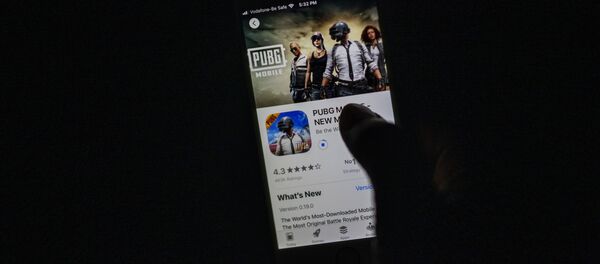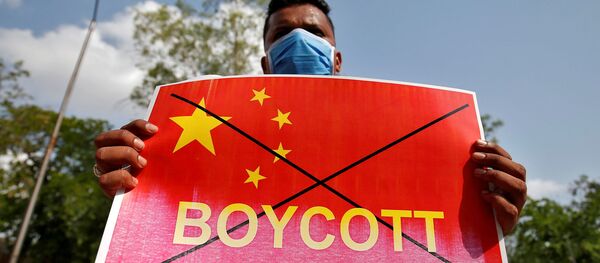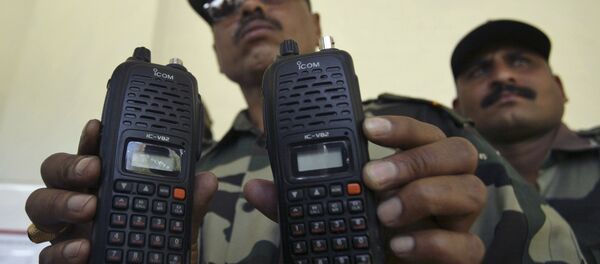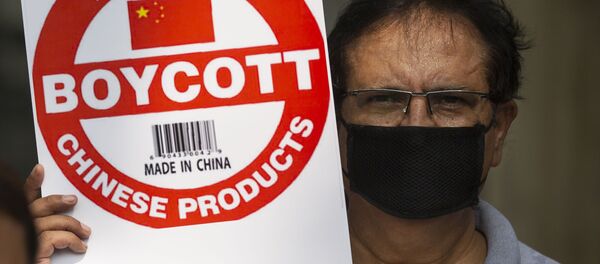After a brief hiatus in the ban spree, the Indian government has pushed 43 more Chinese apps out of the country's digital expanse. At present, a total of 271 China-related apps, including popular ones like TikTok, PUBG, and Alibaba's e-commerce app AliExpress have been banned by India over national security concerns.
Chinese Foreign Ministry Spokesperson Zhao Lijian on Wednesday slammed India's "brutal" app practice.
"For the fourth time since June, India has imposed restrictions on smartphone apps with Chinese backgrounds under the pretext of national security. These move is in glaring violation of market principles and World Trade Organisation (WTO) rules, severely harming the legitimate rights and interests of Chinese companies. China firmly rejects them", Zhao said at a briefing.
"Given the skirmishes at the LAC, the business between India and China cannot be as usual. Unless China resumes the status quo ante at the LAC, a nurturing business environment is difficult to achieve", said Kazim Rizvi, the founding director of The Dialogue.
"Banning apps which raise concerns pertaining to national security of the state is an internal matter and the Chinese government has no right to intervene in India's internal matter. We have a due process laid down in the rules envisaged under the Information Technology Act, and an independent judiciary which ensures its adherence", Rizvi added.
With over 333 million internet users and more than 500 million smartphone users, India makes for the second largest market in terms of net consumption and phones. Hence, India's ban on Chinese apps is a major blow to China's business and economy.
Rizvi says this is "a clear message to our neighbours, that meddling with the sovereignty and territorial integrity of India will not be taken lightly".
In a bid to provide replacements for the banned Chinese apps, Indian Prime Minister Narendra Modi has urged software developers to develop and launch more homegrown alternatives.
For instance, earlier in October, the Indian Army launched a Made-in-India instant messaging app called SAI in a bid to safeguard internal communications from being leaked via foreign-developed messaging apps like WhatsApp and Telegram, among others.
"Modern warfare is fought on many fronts and cyber warfare is a critical part of any country's defence. Besides not just in India, across the world, there is an increasing lack of confidence in apps that have their servers in China. Governments are sceptical that China's communist government can direct the app makers to reveal data for military gains", Kislay said.
The tech expert also added that this move provides an opportunity for Indian app developers to create an ecosystem to make apps safer for Indians.
The first wave of bans was announced on 29 June, when the Indian authorities decided to block 59 Chinese apps, including the video-sharing platform TikTok. A month later, the country issued a ban on 47 more Chinese-developed apps, such as Baidu Search and Weibo followed by prohibitions on 118 more China-made apps.
In September, the Chinese Commerce Ministry slammed the Indian government for banning more Chinese mobile apps, saying that such actions violate the legal interests of investors and service providers. The Chinese ministry's spokesman, Gao Feng, called on India to "correct its mistakes".








